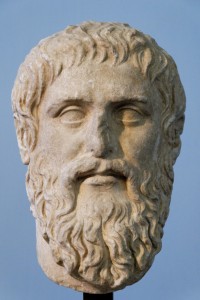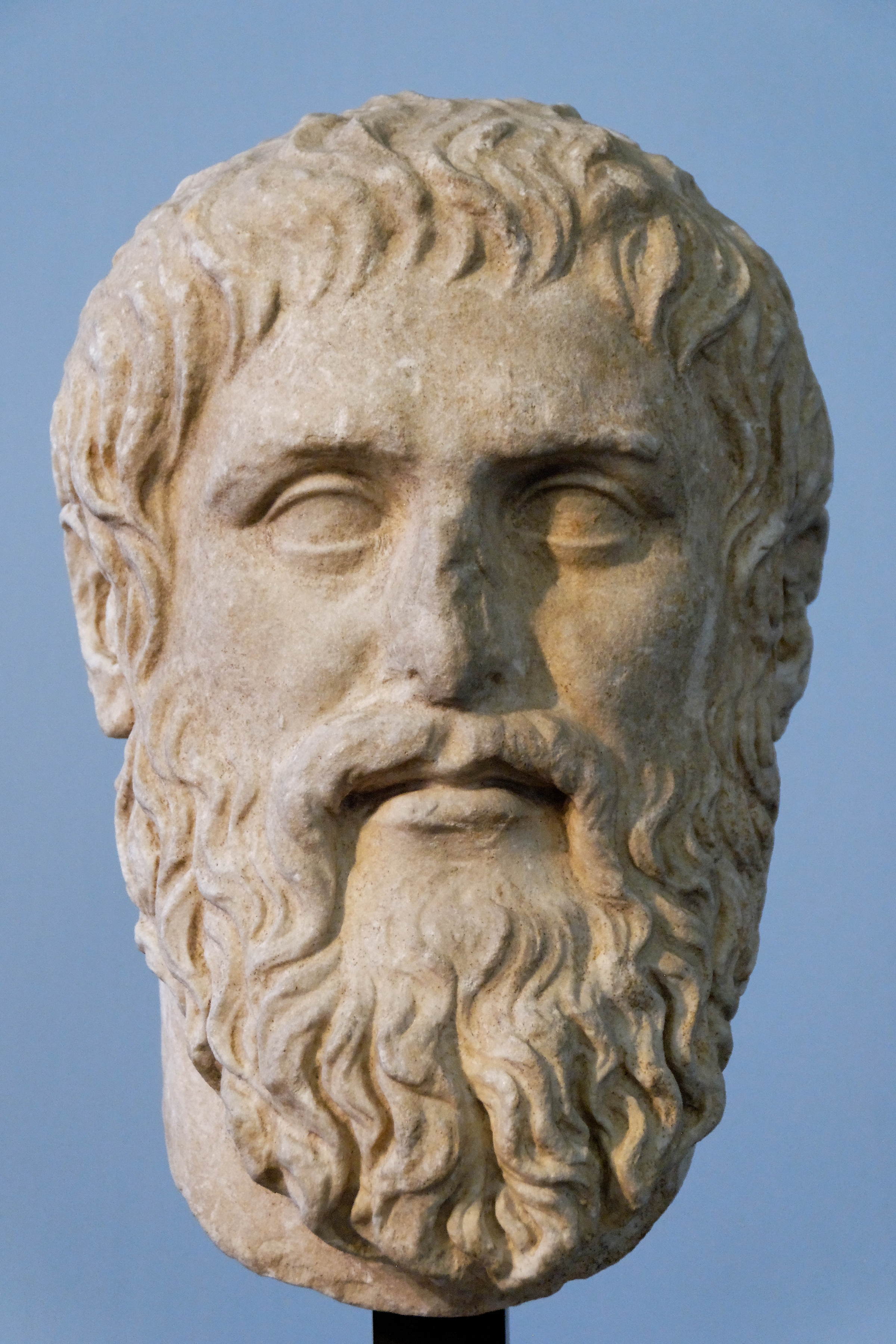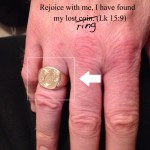Christianity Isn’t a Philosophy Any More Than the Sun is a Light Bulb
 So, here’s what’s on the table:
So, here’s what’s on the table:
Christianity is a mere philosophy which, by default, makes it but one of several comparable options that a person can choose from.
I) A Philosophy is…
If you define a philosophy as a mental approach formulated for the sake of establishing and better understanding what’s right and important, then you’ve got a man made value system that can be either adopted, adapted or ignored. It is neither absolute nor binding, it is merely a suggested guide that promotes individual well being and corporate health.
The problem, however, is that you can’t refer to Christianity as a philosophy any more than you can refer to the sun as a light bulb.
I don’t dictate when the sun rises and sets by flipping a switch. I can manipulate what I can manufacture but I didn’t create God, God created me. And while there are some brilliant philosophers who have crafted some exquisite treatments of the human experience, God is the Source and the Author of the Christian doctrine, thus the credibility and the Truth of all that He offers and commands is neither enhanced nor diminished by my mental disposition. In the words of Isaiah, “…the word of God stands forever.” (Is 40:8).
II) The Bible
Of course, the principal Resource for this perspective is the Bible. Here again you are confronted with critics who insist the the Word of God is nothing more than a collection of strategically selected books compiled by enterprising individuals determined to promote their “religious” agenda. In other words, it is a philosophy – a noble, yet human template designed to foster “correct” thinking and moral behavior.
Thing is, you’ve got to turn a deaf ear and a blind eye to a substantial amount of evidence to conclude that the Bible is the result of a human initiative. Let’s take a moment and consider just what that “initiative” entailed:
- Written over a 1,500 year span
- Written over 40 generations
- Written by over 40 authors from every walk of life including kings, peasants, philosophers, fisherman, poets, statesmen, scholars, etc.
- Moses, a political leader , trained in the universities of Egypt
- Peter, a fisherman
- Amos, a herdsman
- Joshua, a military general
- Nehemiah, a cupbearer
- Daniel, a prime minister
- Luke, a doctor
- Solomon, a king
- Matthew, a tax collector
- Paul, a rabbi
- Written in different places
- Moses, in the wilderness
- Jeremiah in a dungeon
- Daniel on a hillside and in a palace
- Paul inside prison walls
- Luke while traveling
- John on the island of Patmos
- Others in the rigors of a military campaign
[showhide type=”the_Bible” more_text=”Click here to read more about The Bible” less_text=”click here to hide the text”]
- Written at different times
- David in times of war
- Solomon in times of peace
- Written during different moods
- Some writing from the heights of joy and others writing from the depths of sorrow and despair
- Written on three continents
- Asia, Africa and Europe
- Written in three languages
- Hebrew: Was the language of the Old TestamentIn 2 Kings 18:26-28 called the “language of Judah”
- In Isaiah 19:18 called the “language of Canaan”
- Aramaic was the “common language” of the Near East until the time of Alexander the Great (6th century B.C. – 4th century B.C.)
- Greek: New Testament language. Was the international language at the time of Christ1
[/showhide]
The point being that you have a single document that, despite its numerous authors and subjects, is a coherent whole. That in and of itself points to a Divine Source of Inspiration.
Now, it’s possible that a person reviewing the unique characteristics of the Bible could refute the idea of the Bible being Divine by proposing a a scenario where various books of antiquity are simply compiled. What about that? Could you not have a single individual, or a group of individuals, who selectively lumps everything together like an anthology and BOOM, you have a “sacred” text?
Furthermore, could you not be judicious in the way you select your texts to ensure that they promote only what it is you want to communicate and then, should there be anything in the way of “prophecy” that doesn’t ring true, you simply make some changes and you’re then able to create the illusion that you have events being foretold hundreds of years before they actually happen?
Sure!
III) If You Wanted to Create a Creed
Here’s the thing: If you wanted to create a creed, you would craft it in a way where it was appealing. Your principal characters would airbrushed to look heroic and successful. Your champion would lead a life that would resonate with those who value power, fame and wealth.
Furthermore, the feats you propose as being “supernatural” would be presented in a way where they could be easily interpreted as such, regardless of the way the event actually played out. And you wouldn’t create a movement that would immediately put someone at odds with their government or their culture, neither would you ask your followers to adopt a lifestyle that positions service and surrender over being able to command and win.
In short, if you’re going to create a “religion,” you’re going to market it as something that fans the flame of someone’s sense of worth and ability – you’re going to give them a “philosophy” that makes them feel good about themselves and as such draws people to your way of thinking based on every individual’s innate desire for significance and success.
Now, that makes sense! And when you look at the various cults, religions and philosophies that have sprung up over the centuries, you can see how the underlying promises made by these schools of thought cater to a human being’s craving for value, purpose and a sense of power. But that’s not Christianity at all! As a matter of fact, it’s part of what distinguishes being a follower of Christ from every other religion / philosophy that exists or has ever existed.
A) Christianity’s Chief Characters
First of all, let’s consider the way the Bible presents its chief characters.
Lewis S. Chafer, founder and former president of Dallas Theological Seminary, puts it this way: “The Bible is not such a book that man would write if he could, or could write if he would.”
The Bible deals very frankly with the sins of its characters. Read the biographies today, and see how they try to cover up, overlook or ignore the shady side of people. Take the great literary geniuses; most are painted as saints. The Bible does not do it that way. It simply tells it like it is:
The sins of the people denounced – Deuteronomy 9:24
Sins of the patriarchs – Genesis 12:11-13; 49:5-7
Evangelists paint their own faults and the faults of the apostles – Matthew 8:10–26; 26:31-56; Mark 6:52; 8:18; Luke 8:24, 25; 9:40-45; John 10:6; 16:32
Disorder of the churches – 1 Corinthians 1:11; 15:12; 2 Corinthians 2:4 etc.
Many will say, “Why did they have to put in that chapter about David and Bathsheba?” Well, the Bible has the habit of telling it like it is.2
When you look at the human beings of note in the Bible, there’s nothing “groomed” or “Photoshop-ed” about them. It’s like trying to promote a fitness plan by using people who are not in shape, or a fashion designer marketing their apparel using models that don’t look good in the clothes being sold. Suggesting that Scripture has been shaped and edited in order to come across as credible doesn’t really make sense given the way its heroes and heroines are presented as flawed, cowardly and weak.
B) Jesus Christ
Now, let’s look at Christ. No need to apply makeup to his Character. Jesus – He had it all! A charismatic speaker, incredibly popular – He was the ultimate pop icon. But instead of building an empire around his followers and heeding the advice of His closest friends by avoiding trouble, He walks right into Jerusalem knowing full well the religious authorities are gunning for Him (Matt 16:21-23 [Jn 11:45-57]).
The Old Testament presents the Christ figure as One Who will die for the sins of mankind (Is 53:4-5). Let’s say, for the sake of argument, that Jesus is not the Messiah, but He’s smart enough to know that He’s got a good shot of pulling off this charade if He can somehow orchestrate a series of events that gives the impression that He has died and has come back to life.
This is all in print. He can’t edit anything. If He’s going to prove conclusively that He is the Son of God, like He’s been saying all along, then He’s got to do this whole death and resurrection thing (Matt 12:39-40; Acts 13:33-35 [Ps 2:7-9; 16:10; Is 55:3]).
But, now look at this…
…if Jesus were a charlatan or had deceived himself, he could have kept his plan going in perpetuity by saying, “I will spiritually rise again.” Such a claim could never have been contradicted or proven false. But Jesus made no such promise. He promised a bodily resurrection – a concretely demonstrable falsehood if it were not to happen. This is vitally important. Jesus made an empirically verifiable claim and then fulfilled it.3
Why insist on a bodily resurrection? Why not default to something that would’ve been impossible to refute while simultaneously be palatable in the minds of those who were willing to accept something on a purely metaphysical basis?
Again, if we’re looking to process Christianity as nothing more than a philosophy, we’re having to overlook multiple instances of decision makers shooting themselves in the foot with the way they fail to make their main characters appealing along with the manner in which they position their Champion as Someone Who’s obligated to do the impossible when He could’ve made His point using a strategy that would’ve been impossible to refute.
And that’s not the half of it!
C) Lighten Up!
From the very beginning, Christianity has been a polarizing force. Tyrants have historically singled out Christians to be persecuted and eliminated. At no time was this more true than when Christianity was first presented as Truth. The disciples were hiding, for fear of the Jews who had put Christ to death. Jesus was not a Name you wanted to be associated with given the severity of His supposed crimes (Jn 19:7; Acts 20:19). That all changed once the disciples saw Jesus alive and were able to connect the dots that He was, in fact, the Son of God (Acts 2:14-41). But, again, why insist on a message that alienated and offended the powers that were in place? And not just the Hebrew infrastructure, the Caesars were not opposed to “gods,” but they were very opposed to the notion of a King superior to themselves. If Christianity is nothing more than a man-made philosophy, then why intentionally include elements in this philosophy that, by default, single you out as an enemy of the state as well as a criminal in the eyes the current religious system?
D) You Can’t
Finally, Christianity is unique in that it’s founded on the premise that man is broke and incapable of repairing himself. Every other philosophy / religion maintains that you as a human being can facilitate your own redemption. You can earn your salvation, you can merit God’s favor. Whether it’s through deeds or discipline or both, you can elevate and improve yourself in every way. To be a Christ follower, you have to heed the words of Christ referenced in Luke 9:23 where He says that you have to “deny yourself.”
Now, this isn’t merely subordinating your more base impulses. This is a complete surrender to an offer that results in a total change (2 Cor 5:17). You do not earn God’s favor, you don’t meditate into His Presence – you simply accept His offer of Grace and Forgiveness and in that moment you go from being a spiritual corpse to having a spiritual pulse (Eph 2:1-2; 4-5).
On one hand, this sounds great. Completely free, nothing to do in an effort to prepare or polish what might otherwise try to offer God. But it flies in the face of what a man wants to believe about himself in that he wants to maintain his autonomous ability to pull himself up by his own spiritual bootstraps and accomplish whatever needs to be done.
If Christianity was a man made philosophy, it would be like every other religion in that you would be able to somehow rate your god’s attention and approval. Christianity says, “No, you can’t.” Now, that’s not the end of the story. The good news – literally “the Gospel” – goes on to say that while you’re incapable, God is more than capable and He’s accomplished what is needed to bridge the gap that exists between you and Himself. But as wonderful and as exquisite as that doctrine is, it’s a deal breaker for many in that they don’t want to accept anything that is predicated on the idea that “they can’t.”
IV) Conclusion: You See Where This is Going?
You see where this is going?
The critic who wants to dismiss Christianity as nothing more than a philosophy – one of several metaphysical approaches that can be adopted according to whatever best suits your particular dynamic – forgets that, as a philosophy, Christianity makes absolutely no sense in the way it’s constructed, the way it’s presented and in what it requires. To brush it aside as “…whatever gets you by” neglects to consider that there’s very little about being a follower of Christ that caters to the way most define success in terms of one’s business card and checking account.
The reason Christianity does “work” is the same reason it’s endured despite being the object of several tyrannical campaigns throughout history is because it’s True. As a philosophy, it’s neither logical nor appealing. But as Truth, it defines the difference between living and existing and it’s credibility is based on not so much those who advocate it, as much as it’s based on the One Who authored it.
“I came to Him because I did not know which way to turn. I remained with Him because there is no other way I wish to turn. I came to Him longing for something I did not have. I remain with Him because I have something I will not trade. I came to Him as a stranger. I remain with Him in the most intimate of friendships. I came to Him unsure about the future. I remain with Him certain about my destiny. I came amid the thunderous cries of a culture that has 330 million deities. I remain with Him knowing that truth cannot be all-inclusive.” 4
- “Evidence That Demands a Verdict”, Josh McDowell, Thomas Nelson, Nashville, TN, 1972, p16
- Ibid, p23
- “The Grand Weaver”, Ravi Zacharias, Zondervan, Grand Rapids, MI, 2007, p166
- “Goodreads” “Ravi Zacharias quotes”, http://www.goodreads.com/author/quotes/3577.Ravi_Zacharias, accessed January 4, 2015








Leave a Reply
Want to join the discussion?Feel free to contribute!